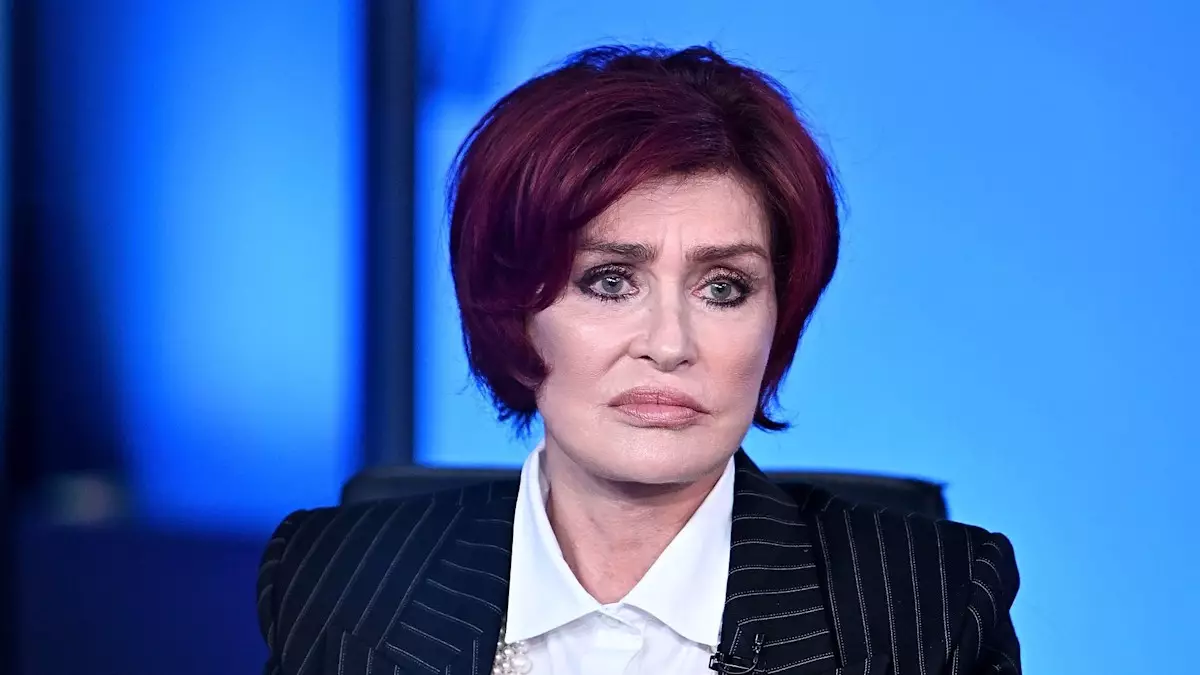The music industry is a powerful force, capable of transforming young, hopeful talents into international superstars virtually overnight. However, the darker side of fame often lurks in the shadows, a reality that many young artists, including Liam Payne of One Direction, faced during their meteoric rise to stardom. In an emotional tribute, Sharon Osbourne poignantly shared her reflections on the pressures that engulfed Liam, underscoring an industry that may have failed to provide the essential support during his formative years in the spotlight. As both a judge on *The X Factor* and a mother figure within the sphere of entertainment, Sharon’s insights resonate deeply with the growing conversations surrounding mental health and the treatment of young artists in an unforgiving industry.
Liam was thrust into the limelight as a teenager, navigating high expectations while chasing his dreams. At only 16, he became part of One Direction, a band that would rise to extraordinary heights, accumulating awards and a loyal fanbase along the way. While the world saw a charming young man with an incredible voice, few understood the immense pressure he was undergoing behind the scenes. Sharon’s emotional message emphasized the often-overlooked struggles endured by artists: “You were just a kid when you entered one of the toughest industries in the world. Who was in your corner?” This question resonates with an urgency that brings attention to the responsibilities of the industry toward its younger talents.
The Temporary Joys and Lasting Consequences of Fame
Despite achieving phenomenal success with hits like “What Makes You Beautiful,” One Direction’s journey was not devoid of personal costs. The sheer pressure to maintain popularity and constantly deliver hits can lead to severe consequences for those unprepared for such a lifestyle. As Sharon lamented the industry’s failures in supporting Liam, one cannot help but wonder how many others are suffering in silence, battling their demons while the world watches and celebrates their every move.
The bright lights of fame often cast long shadows, with many young artists grappling with isolation, anxiety, and other mental health struggles. In Liam’s case, his battles with alcoholism became a topic of conversation during and after his time with One Direction, revealing a vulnerability that many fans wished to understand. His candid admissions about hitting “rock bottom” provide a stark reminder of the human cost behind the glitz and glamour. Liam’s journey underscores the urgent need for systemic changes within the music industry, ensuring that artists are not just seen as products for entertainment but as individuals in need of support and guidance.
A Generational Call for Change
Sharon Osbourne’s heartfelt tribute struck a chord with many, including fans and industry insiders alike. The loss of a bright talent like Liam Payne serves as a wake-up call, prompting a necessary dialogue about how the music industry can do better. Are we doing enough to protect our stars, particularly the young and impressionable? The narrative around Liam’s struggles indicates a gap that needs to be filled, a cultural shift that must occur to prioritize mental health and well-being over commercial success.
The aftermath of Liam’s tragic passing should not merely serve as a moment of sorrow but also as a catalyst for change. Creating robust support systems for young artists, promoting mental health awareness, and encouraging open discussions about the pressures of fame can lead to a healthier environment within the industry. Liam’s legacy should inspire future generations of musicians, helping them navigate the complexities of fame without falling prey to its darker aspects.
As we reflect on Liam Payne’s life and untimely departure, it becomes clear that the losses we endure should galvanize us to advocate for more compassionate practices within the music industry. Sharon Osbourne’s moving tribute offers a glimpse into the innate fragility of fame, mirroring the struggles faced by many young talents today. It is essential that artists feel empowered to seek help without fear of judgment, fostering a culture of understanding and support.
In honoring Liam’s memory, we must strive to create a safer, more nurturing environment for all those living under the bright lights of the music industry, ensuring that no one feels alone in their journey. As Sharon concludes her message with “rest in peace, my friend,” we are reminded of the delicate balance between success and personal well-being—a balance that needs urgent re-evaluation to prevent further heartbreak.

